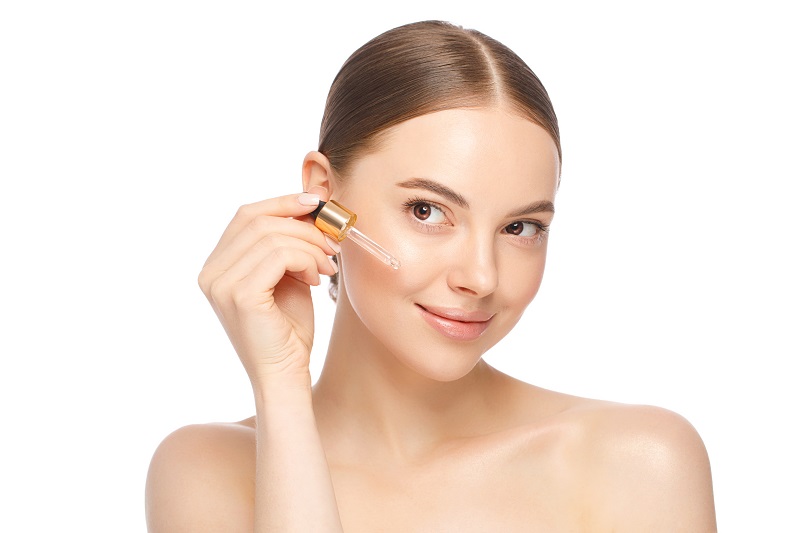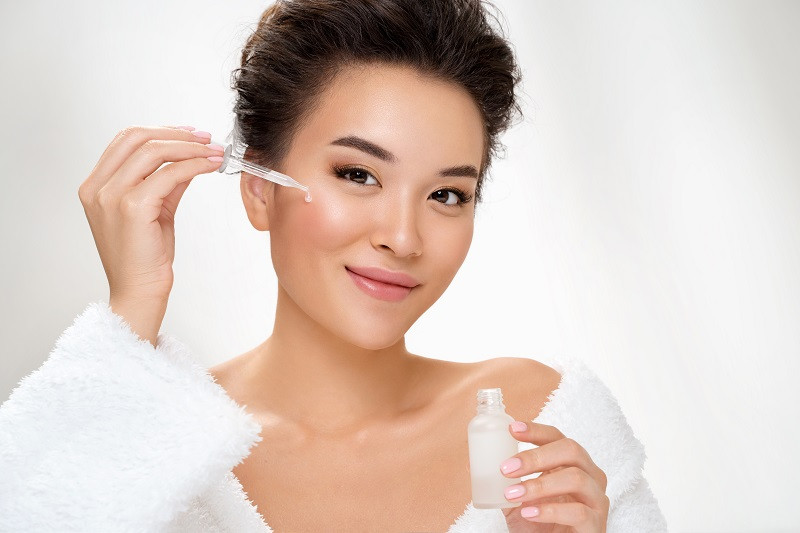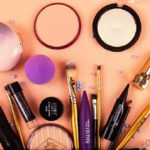Serum, also known as essence, is a skincare product that is designed to reduce wrinkles, treat acne scars, dark spots, and deeply nourish the skin from within. It is believed that serum has a profound effect on the deeper layers of the skin.

Some common types of serums include:
Moisturizing serum: This type of serum usually contains ingredients like hyaluronic acid, aloe vera, ceramide, and vitamin E. The purpose of this group is to provide moisture to the skin, especially hyaluronic acid, which helps bind water molecules under the skin more effectively, resulting in hydrated and less wrinkled skin.

Anti-aging serum: Anti-aging serums focus on enhancing cell regeneration and slowing down the aging process. They are usually used at night to supplement the skin with nourishing ingredients for regeneration and anti-aging purposes.
Whitening serum: This type of serum often contains a high concentration of antioxidant ingredients to inhibit melanin production and melanocyte formation, helping the skin become more even-toned and brighter.
Things to remember to make the most of serum:
Use serum with moisturizer: It is recommended to apply a thin layer of serum followed by a layer of moisturizer. This helps protect the serum from evaporating and allows for deeper penetration and better results.

Amount of serum to use: Since serum is highly concentrated and fast-absorbing, only a small amount, about 2-3 drops, is needed. Avoid applying too much to avoid wastage. To determine the right amount for your skin, apply the serum and wait for 5 minutes. If your skin still feels dry, apply a bit more.
Frequency of use: It is recommended to use serum twice a day, in the morning after cleansing and in the evening after removing makeup. Make sure to cleanse your face thoroughly before applying serum to allow for deep absorption. Accumulated dead skin cells and impurities can hinder the serum from being absorbed effectively. After cleansing, tone your skin, then apply the serum. Never apply serum on dirty skin.





































